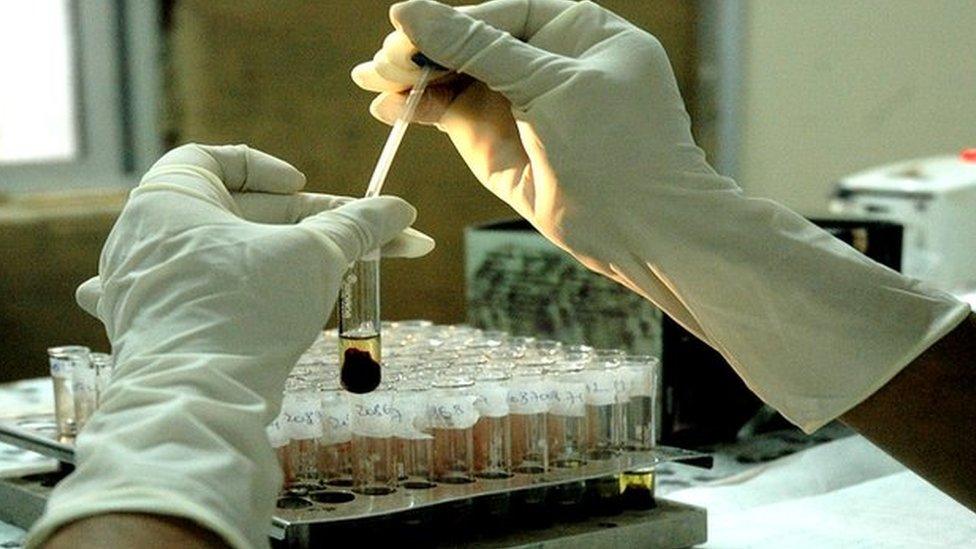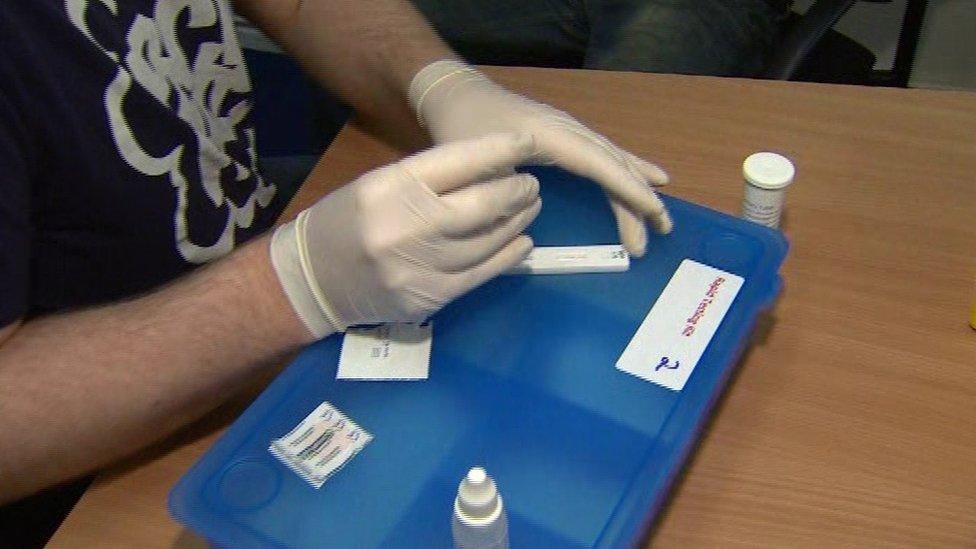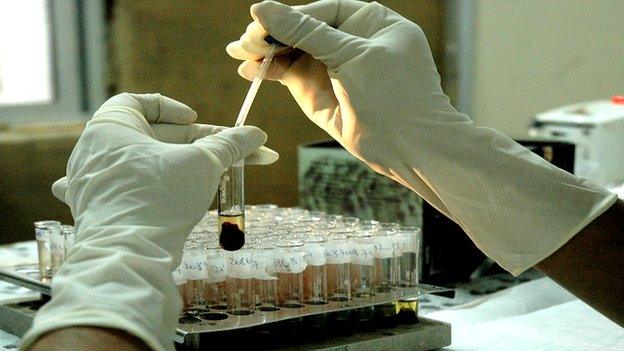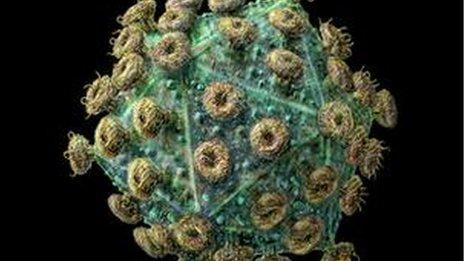HIV myths persist in Northern Ireland says charity
- Published

HIV charity Positive Life said attitudes about HIV were sometimes not helpful
A charity which supports people with HIV and Aids has said myths about the virus persist in Northern Ireland.
The rate of new cases of HIV in Northern Ireland increased by 81% in the 10 years to 2015.
During the same time, rates of new HIV cases fell across the UK as a whole by 23%.
Speaking on World Aids Day, Jacquie Richardson of charity Positive Life, said attitudes in NI were not helping.
"That this is a gay men's disease, that you can catch it from sitting beside someone and holding their hand or from sharing crockery or using the same toilet facilities," she said.
"Some of those myths are still very, very much out there."
The Public Health Agency (PHA) has said that HIV prevalence in Northern Ireland remains lower than in the other UK countries.
However, the percentage increase in annual new diagnoses in NI between 2005 and 2015 is highest of UK countries.

Living with HIV: Belfast man Matthew Cavan
"I've been living with HIV now for seven years and the first couple of years I would have said the virus affected me - living with HIV was difficult.
"But actually, what really affects me now, more than anything, is other people's views and opinions of HIV and me living with HIV.
"I've had people who have completely cut me out of their lives - friends, after my diagnosis, who I have never spoken to again because they were worried to be seen with me or to be friends with me because of it.
"I've got really horrendous abuse on social media, where I've had death threats.
"I've had to get the police involved, because I've had a man who said he wanted to come and stamp on my chest because he thought he would do the world a favour by killing me before AIDS killed me.
"Within Northern Ireland, we have a complete lack of awareness and a complete lack of education around HIV."

During 2015, 103 new cases of HIV were diagnosed in Northern Ireland.
The key routes of transmission remain sexual contact involving men who have sex with men (58%) and sexual contact between men and women (34%).
Early diagnosis
Dr Neil Irvine of the the PHA said that many people who are living with HIV have no obvious signs or symptoms.
"The only way of knowing if you have the virus is by taking a HIV test. It is important not to delay seeking advice and taking this test if you feel you have been at risk," he said.
"The earlier the condition is diagnosed the more successful treatment is likely to be.
"People with HIV have a near-normal life expectancy if diagnosed early and treated promptly. It is estimated that the majority of onward transmission is from those with undiagnosed HIV."
- Published1 December 2015

- Published1 December 2014

- Published29 November 2012
